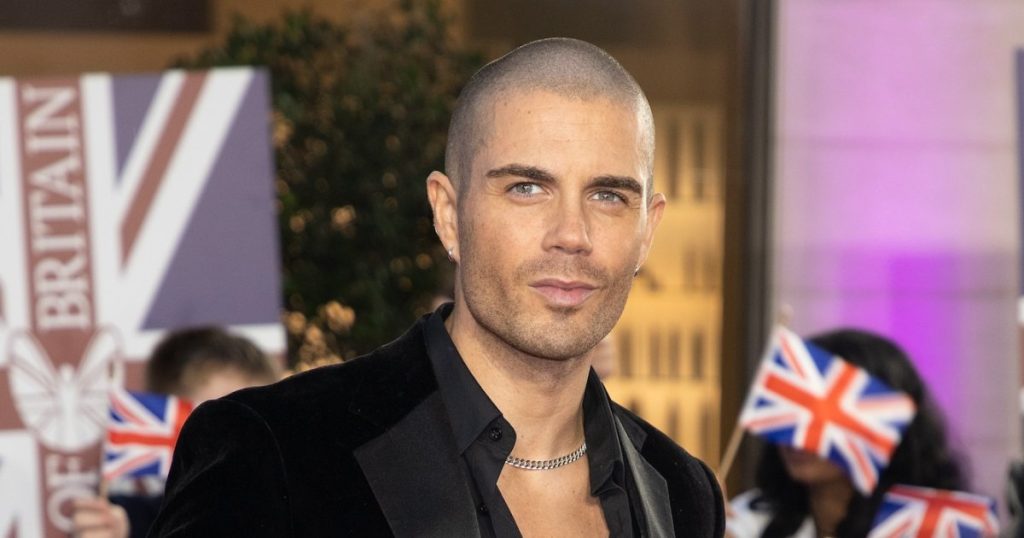Max George, the 36-year-old frontman of The Wanted, recently endured a harrowing health scare that culminated in the insertion of a pacemaker. His ordeal began subtly, with a general malaise and lethargy that he initially dismissed as inconsequential. However, these seemingly minor symptoms quickly escalated into a terrifying experience. While staying at his mother’s house, George awoke one morning with alarming physical changes: his hands were blue, his arms grey, and he was seized by an intense cold. He also experienced a disconcerting sensation of his throat closing, a feeling he likened to someone’s hands constricting his neck. Fortunately, his mother witnessed his distress and immediately sought medical attention.
Although an initial check-up resulted in George being sent home, his mother’s persistence in seeking further medical advice proved crucial. George’s condition continued to deteriorate, marked by extreme fatigue, an inability to move his arms, and the persistent, frightening sensation of his throat closing. This persistent symptom, coupled with his mother’s intuition, ultimately saved his life. Further medical examination revealed a serious cardiac issue: the electrical signals in his heart were malfunctioning, preventing the lower chambers from effectively pumping blood throughout his body. Doctors informed him that he required a pacemaker, a diagnosis that left him in shock. The gravity of the situation was underscored by the doctors’ explanation that without intervention, his life expectancy could be measured in weeks, months, or even hours.
The days leading up to the pacemaker implantation were fraught with anxiety and physical distress. George experienced sleepless nights plagued by the terrifying sensation of his throat closing and labored breathing. His condition took a critical turn when his heart rate plummeted to a dangerously low 26 beats per minute, coupled with a drop in blood pressure. This critical episode occurred on Friday, December 13th, a day George recalls as the most harrowing of his ordeal. The urgency of the situation intensified as the necessary specialists were not immediately available to perform the emergency operation. He vividly remembers the overwhelming panic and the stark realization that he might be dying.
George’s health scare intensified, culminating in a critical moment where his heart rate and blood pressure plummeted simultaneously. This terrifying episode, occurring on Friday, December 13th, left him feeling as though death was imminent. The urgency of the situation was compounded by the absence of the necessary specialists to perform the emergency procedure. The fear and vulnerability he experienced during this time were palpable, etched in his memory as the most harrowing period of his ordeal. He describes the sensation of his throat closing, the labored breaths, and the overwhelming panic that gripped him as he confronted the possibility of his own mortality.
Following this near-death experience, George was transferred via ambulance to another hospital on December 15th for a CT scan. Three days later, he underwent the life-saving pacemaker implantation surgery. He recounts waking up after the procedure with his partner, Maisie Smith, by his side. The immediate relief was profound; his heart rate normalized, and he felt a tingling sensation in his feet as blood circulated properly throughout his body. The simple joy of feeling alive again was overwhelming. He describes the moment with Smith as a return to normalcy, a comforting respite from the fear and uncertainty that had consumed him. They cuddled, talked about football, and for a brief time, the shadow of his recent brush with death receded.
This experience has undoubtedly left a lasting impact on George. The sudden realization of his mortality at such a young age forced him to confront his own vulnerability. The fear, anxiety, and physical discomfort he endured during the ordeal underscore the seriousness of his condition. However, the experience also highlights the importance of persistent advocacy from loved ones, like his mother, and the unwavering support of a partner. The swift action of his mother, the expertise of the medical professionals, and the comforting presence of Smith played crucial roles in his recovery. George’s experience serves as a powerful reminder of the fragility of life and the importance of cherishing every moment. His story also emphasizes the critical need for listening to one’s body and seeking timely medical attention when something feels amiss.

